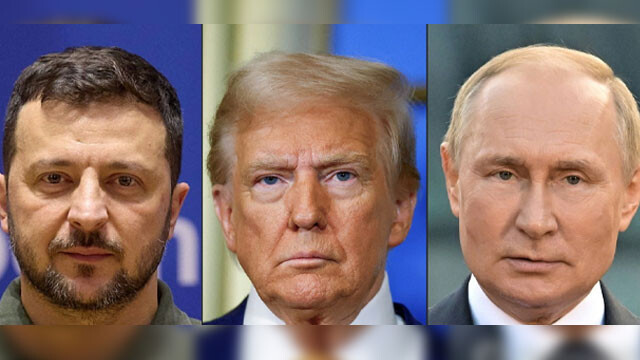
ANCHORAGE – As the highly anticipated summit between U.S. President Donald Trump and Russian President Vladimir Putin approaches, a pivotal question looms over the fate of the Ukraine conflict: Will Ukrainian President Volodymyr Zelenskyy be at the negotiating table? Set to take place in Alaska on August 15, the bilateral meeting has become the focal point of intense diplomatic activity aimed at ending a war that has raged for nearly four years. The potential for a sudden breakthrough has amplified calls for Kyiv's direct involvement, a move that could prevent any deal from being seen as a betrayal of Ukrainian sovereignty.
According to statements from top U.S. and European officials, the possibility of Zelenskyy's attendance is no longer a remote prospect but a serious consideration. U.S. Ambassador to NATO Matthew Whitaker, speaking to CNN, confirmed that Zelenskyy's presence is "certainly a possibility," emphasizing that a sustainable peace cannot be achieved without the consent of all parties. Whitaker's comments suggest a shift in the diplomatic landscape, with the White House and its allies grappling with the delicate balance of negotiating with Russia while upholding Ukraine's autonomy.
The initial plan for a trilateral summit, which would have included Zelenskyy from the start, was reportedly rebuffed by Moscow. However, sources familiar with the matter indicate that the White House is now open to the idea of a three-way meeting, though the priority remains the bilateral discussions requested by Putin. The prospect of a deal struck without Kyiv's consent has fueled anxiety across Europe. There is a palpable fear that Trump, in his eagerness to secure a peace deal, might agree to terms that would force Ukraine to cede significant territory to Russia.
This concern has been openly voiced by Zelenskyy himself, who in a recent video address, delivered a powerful message rejecting territorial concessions. He declared, "Ukrainians will not give up their land," and warned that any decision made without Ukraine's participation would be a "dead decision." This sentiment is echoed by EU leaders, who have been working in concert with Zelenskyy to ensure their voices are heard. European Union High Representative for Foreign Affairs and Security Policy Kaja Kallas has been unequivocal, stating that "any deal between the U.S. and Russia must include Ukraine and the EU" because the security of the entire continent is at stake. NATO Secretary-General Mark Rutte reinforced this view, highlighting the summit as an opportunity to reaffirm Ukraine's right to choose its own geopolitical future.
Despite these diplomatic efforts, Russia's position remains uncompromising. Moscow views the summit as a chance to formalize its territorial gains and secure a long-term agreement that would prevent Ukraine from ever joining NATO or hosting Western military forces. Yuri Ushakov, a Kremlin foreign policy aide, has made it clear that Russia's stance has not changed, signaling that Moscow is not prepared to make concessions.
As the world watches the high-stakes diplomacy unfold, the question of Zelenskyy's attendance has become a litmus test for the summit's legitimacy. His presence would not only legitimize the outcome in the eyes of Ukraine and its Western allies but also send a powerful message that the era of great powers deciding the fate of smaller nations is over. His absence, however, could be interpreted as a green light for a peace deal on Russia's terms, potentially sowing the seeds for future conflict. The coming days will reveal whether the urgent appeals for Ukraine's inclusion will sway the decision-makers in Washington and Moscow.
[Copyright (c) Global Economic Times. All Rights Reserved.]






























